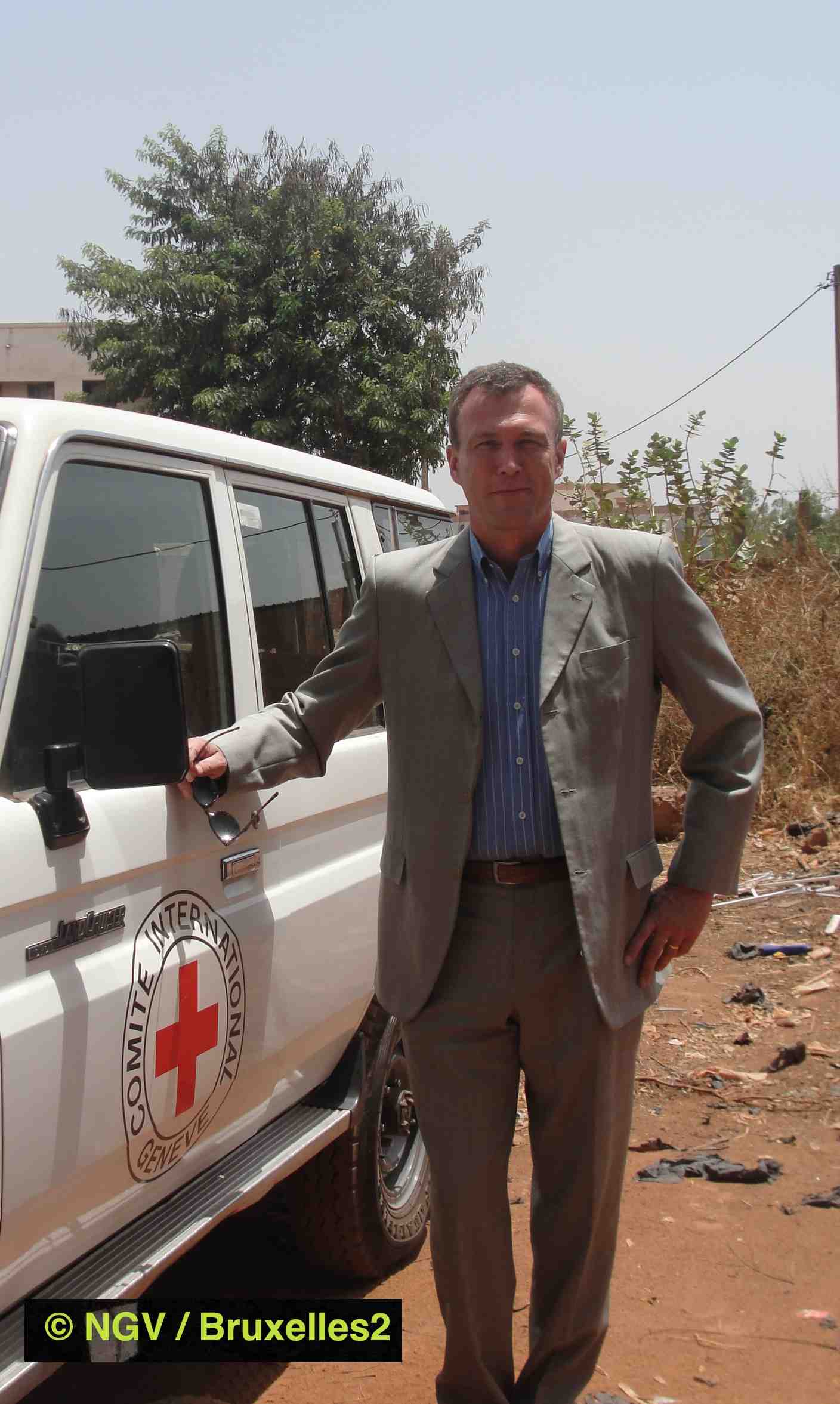To be able to visit all prisoners without exception
 (BRUSSELS2 to Bamako) For the International Committee of the Red Cross, the conflict in Mali did not start on January 11, the date of the French intervention, but a year earlier. For Alexandre Faite, his delegate in the Malian capital, " Since the start of the conflict, there has been good access to all persons deprived of their liberty ". At least on the side of the Malian authorities. They “quickly realized what they could get out of it in terms of supervising the prison authorities, with the added confidentiality aspect. »
(BRUSSELS2 to Bamako) For the International Committee of the Red Cross, the conflict in Mali did not start on January 11, the date of the French intervention, but a year earlier. For Alexandre Faite, his delegate in the Malian capital, " Since the start of the conflict, there has been good access to all persons deprived of their liberty ". At least on the side of the Malian authorities. They “quickly realized what they could get out of it in terms of supervising the prison authorities, with the added confidentiality aspect. »
Not all armed groups
On the side of the rebels, the organization was thus able to have access to prisoners held by the MNLA, in its two 'options' (with the rebels and against the rebels). The Malian soldiers caught in the offensive by the MNLA were released fairly quickly, well before Operation Serval. But this openness did not extend to other armed movements. The ICRC "has contact with everyone. And we raised the issue of protection with everyone with MUJAO and Benmokhtar's lieutenants in particular. Corn " despite repeated attempts to see the detainees, we have not been able to obtain visitation rights”. The movements were apparently playing cat and mouse. " It was once yes, once no. » In the end, it was no. Ditto for access to hostages. " It's not for lack of trying."
Good cooperation with the French
After starting Serval, " we were able to gain fairly quick access to people arrested and detained by the Malian gendarmerie ". Cooperation with the French army is good. Every week a situation update is made between the "Legad" (legal adviser) of the Serval force and the "protection" coordinator of the ICRC. Because if the French army does not retain prisoners, it hands them over to the Malians. An agreement has been concluded between French and Malians, known as "non-refoulement". That is to say respect for the “relevant” rules of international law. « We then manage to be present during the handover to the Malian authorities”.
Global visit agreement
But one of his successes is quite recent. After long discussions, including up to the highest level of the State (President of the Republic, Prime Minister), a global visitation agreement was negotiated with the Malian authorities. It is these which collect a good part of the prisoners taken in the north, jihadists and others, detained in particular in the central prison of Bamako.
This agreement has an interest: it recognizes the right of the ICRC "to visit any person wherever they are and at whatever level of proceedings ". An authority cannot thus use the pretext of an ongoing judicial inquiry or, on the contrary, the absence of the opening of a judicial inquiry to refuse the right of access. It should thus make it possible to be able to access people who may still be detained/retained “incommunicado”. It is a subject sensitive “especially when you want to interview people” for information ».
ICRC procedures
The ICRC's first step is in fact based on two essential procedures. First, registration. Each prisoner is identified in an electronic database. " It is important " note A. Done. “A registered inmate rarely disappears. This is a principle that we have seen all over the world. » The procedure is normally done only by ICRC expatriates. This presupposes having access to the region concerned. Recordings have thus been made in Gao, Mopti, Timbuktu and Bamako and very recently in Kidal, for "jihadist" prisoners detained by the MNLA (in its "allies of the French" version). Even if the means can be rudimentary. " The last time, it was done on the plane. About 300 prisoners would have been registered in this way.
The second step is more concrete. It is a " in-depth interview, without witnesses or listening ". The prisoner retraces his journey, how he was treated (food, accommodation, attitude of the guards, etc.). Everything is archived and a confidential report submitted to the authorities. Reports were thus given to the MNLA and to the Malians but not to the French.
Child soldiers
The ICRC confirms the presence of child soldiers. In the era of armed groups, there were (already) very young weapon bearers ". Of course there is " always a difficulty in determining the age ". But among the prisoners, “there were clearly identified minors ". UNICEF took care of them.
NB: In 2012, the ICRC carried out 41 prison visits for the benefit of 3 detainees, of whom 500 were followed individually and facilitated the transfer of 242 released detainees.
